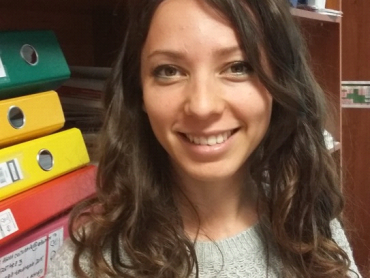Stefan Peca, Playwright
In our research for “In Your Own Words” I watched,
together with director Radu Apostol, about 1,000 movies
created by participants in digital storytelling workshops
in four Romanian cities, Bucharest, Cluj-Napoca, Sibiu
and Braila, in 2015. The general topic of these movies
was multi-cultural diversity as seen through the people’s
personal stories.
They were amateur storytellers who learned how
use images and create a video, illustrating a script
they wrote themselves. The outcome was a col-
lection of heterogeneous movies: essays, stories,
mini-monographs, interviews, biographies of fam-
ily members, promotional materials for NGOS etc.
Some of the unifying elements were, however, inde-
pendent of geography and more related to the way
we choose to express ourselves throughout our life.
Most of the movies, even when discussing very personal
topics, glided into clichés. Even when they were talking
about their own lives, the participants tended to guard
themselves by using “nice” words: clichés seemed to save
them from vulnerability or from a real opening towards
their subjective life.
These clichés were inherited from the language
of nationalism and communism (the fatherland is holy,
our village is an icon, we are victims of history) updated
to Facebook (patriotism is dead, there’s nothing holy
anymore) in all its shallowness and lack of information,
pompous and using figures of speech at random. It didn’t
matter is the movie was made in Braila or in Cluj and
age groups didn’t seem to count either, which made
us reflect on the current situation. It’s obvious that the
style is imposed by the school system, starting with the
first essays we are forced to write. In an age when all
of us have may express freely online and thus become
public figures (Facebook or Twitter posts are now quoted
by mainstream media), the way we use clichés to express
ourselves has become a social phenomenon. We are what
we say, in the end, even if we don’t, actually, say what
we are. The habit of critical thinking ranks among the
least important skills we get in school.
Therefore, the true source of inspiration for the story
told by “In Your Own Words” was less what we heard in
the 1,000 movies and more what we learned from the
way 1,000 people from four different regions of Romania
told their stories. How do we learn to express ourselves?
How do we tell stories? What does “personal” mean?

 Previous Post
Previous Post

